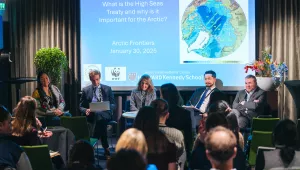Abstract
Faced with rapid resource depletion, degradation, and shortages in the Indus River Basin in Punjab, Pakistan, the provincial government of Punjab identified "integrated water resources management" as the guiding paradigm for achieving efficient, equitable, and environmentally sustainable use of natural resources in the province. However, no clear roadmap for how multisectoral, "integrated" resource management and governance can be operationalized exists. The larger challenge involves growing municipal, industrial, and environmental demands for water, the rapidly growing need for food in the populous province, and the expanding requirements for energy. This chapter focuses on the most obvious but elusive challenge of integrating irrigation and agriculture in Punjab and explores the essential nexus of water and food. It uses a combination of historical, institutional, and statistical analyses to investigate how integrated food and water planning can be achieved in Punjab. The historical analysis traces how the idea of integration in irrigated agriculture evolved in Pakistan's colonial history and within the province of Punjab after independence. It reveals that both the Irrigation Department and the Agriculture Department have highlighted the need for vertical and horizontal integration within and between the departments throughout their existence. The institutional analysis explores how planning is currently done within and across the provincial departments of agriculture and irrigation. Finally, the chapter briefly demonstrates the statistical challenges of and opportunities for integrating irrigation and agricultural data, which are recorded in different spatial units but which can still have a measure of integration in integrated farm-level data analysis. Finally, this chapter uses the idea of boundary spanning to strengthen the meso-scale capacity for integrated irrigation agriculture planning in Punjab.
Shahid, Ayesha, Afreen Siddiqi, and James L. Wescoat Jr. "Integrated Irrigation and Agriculture Planning in Punjab: Toward a Multiscale, Multisector Framework." In Indus River Basin: Water Security and Sustainability, Khan, Sadiq I. and Thomas E. Adams, III. Amsterdam, The Netherlands: Elsevier Inc., 2019: 389–415.





